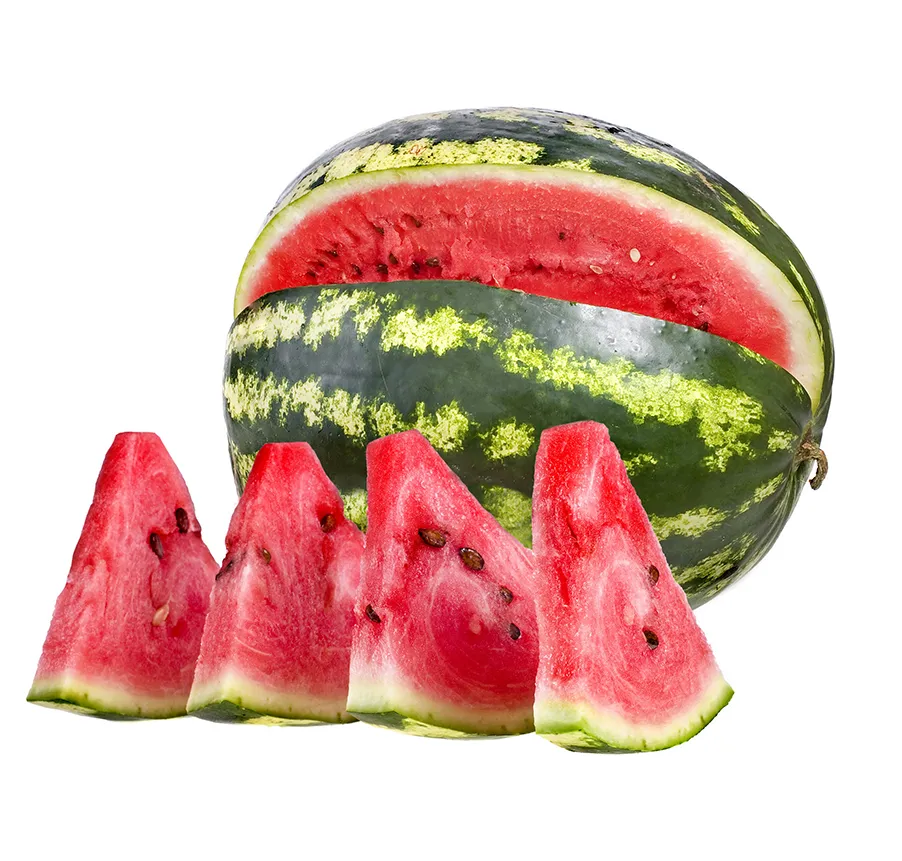
| Glycemic Index | Glycemic Load |
75.0
|
5.6
|
The glycemic index (GI) of watermelon equals to 75.0, which classifies it as a high GI food. The glycemic load (GL) of watermelon is equal to 5.6, which classifies it as a low GL food.
| Nutrition Facts | |
| Calories (kcal) | 30.0 |
| Carbohydrates (g) | 7.5 |
| Proteins (g) | 0.6 |
| Fats (g) | 0.1 |
100 grams of watermelon contain 30.0 kcal (126 kJ), 0.6 grams of proteins, 7.5 grams of carbohydrates, and 0.1 grams of fats.
Watermelon is an incredibly popular and nutritious fruit. It’s high in vitamins A, B6, and C as well as being a great source of lycopene and antioxidants. Watermelons are also low in calories with only 46 per cup which makes it ideal for weight loss diets. The main benefit of eating watermelon is that it can help to keep you hydrated due to its 92 percent water content – making it the perfect summer snack! Additionally, since they are so sweet yet naturally low-calorie they’re a great option if you have a sweet tooth but want something healthier than candy or other desserts. They’re also very easy to prepare – simply wash them off then cut them into slices or cubes for easy snacking! Unfortunately, there are some cons associated with consuming large amounts of watermelon such as potential digestive issues from its high fiber content (1/2 cup provides 6% of your daily needs). Some people may experience bloating or cramping when eating too much at once, so be sure not to overdo it on this delicious treat! Additionally, because of their natural sweetness some people worry about the sugar content although each serving does contain only 11 grams on average compared to most fruits like apples which typically have 19g per serving.